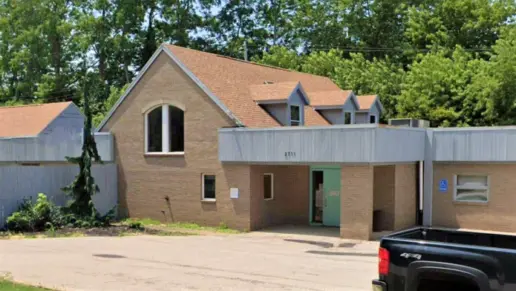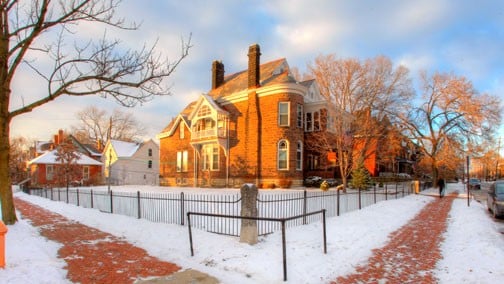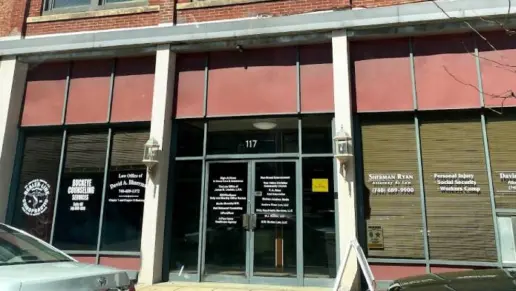About Family Service of Northwest Ohio – Defiance
Family Service of Northwest Ohio - Clinton St. offers outpatient treatment for children and adolescents with a mental health diagnosis. The program includes individual counseling, psychiatric evaluation, family support, couples therapy and more. Family Service of Northwest Ohio - Clinton Street is located at Defiance, Ohio.
Family Service of Northwest Ohio – Clinton St. has offices in Defiance, Fulton, Henry and Williams Counties. All offices can be accessed through o central telephone number. Referrals from schools, courts and other community organizations are also welcome. For those that qualify, there is a sliding fee scale based on the size of the household and on the income. As appropriate, they also work with Medicaid, private health insurance and the Four County ADAMH’s Board.
A clinical review of an individual or family with the emphasis on how their specific concern impacts their personal situation. Clinical recommendations are made giving options that are available to them.
Intensive Home-based Therapy Program (IHBT) is a comprehensive service that merges mental health services into a single coordinated service which includes case management, mental health assessment, crisis response, behavioral health counseling and therapy and social services. Sessions are held within the client’s home to provide the structure to help the family function at their highest level of ability. The target population for IHBT is children with severe behavior issues who are at risk of being removed from their home.
Community Psychiatric Supportive Treatment includes linking, referring and supporting families to receive appropriate services in the community. Some of the services provided are resource assistance, crisis support and coordination of services. Their case managers work in the community to link and support families. They educate parents and others in effective parenting techniques. They pride themselves on their small caseloads and hands-on approach with each family. Services are tailored to help the client and their families manage life’s challenges.
Intensive Community Psychiatric Supportive Treatment (ICPST) Is available at Family Service of Northwest Ohio – Clinton St. for children who are involved with multiple systems, are at risk of being removed from their home and have a high need for collaboration between professionals and the family.
The ICPST worker will meet with the family on a regular basis to model parenting skills and implement behavior plans. They will also teach social and anger management skills to the child as needed. The worker will coordinate family team meetings to ensure that all professionals and support systems are working together with the family. Finally, the worker will link the family to needed resources that will assist in stabilizing the family.
Rehab Score
Accepted Insurance
Other Forms of Payment
Self-pay involves paying for treatment out of your own pocket. You can use savings or credit, get a personal loan, or receive help from family and friends to fund your treatment. If you don't have insurance or your insurance plan doesn't cover a specific program, self-pay can help ensure you still get the care you need.
Sliding scale payments are based on a client's income and family size. The goal is to make treatment affordable to everyone. By taking these factors into account, addiction recovery care providers help ensure that your treatment does not become a financial burden to you or your family, eliminating one barrier to care.
Medicaid is a state based program that helps lower-income individuals and families pay for healthcare. Medicaid covers addiction treatment so those enrolled can use their coverage to pay for rehab. When a program accepts Medicaid the client often pays very little or nothing out of their own pocket.
Private insurance refers to any kind of healthcare coverage that isn't from the state or federal government. This includes individual and family plans offered by an employer or purchased from the Insurance Marketplace. Every plan will have different requirements and out of pocket costs so be sure to get the full details before you start treatment.
Addiction Treatments
Levels of Care
Treatments
Mental health rehabs focus on helping individuals recover from mental illnesses like bipolar disorder, clinical depression, anxiety disorders, schizophrenia, and more. Mental health professionals at these facilities are trained to understand and treat mental health issues, both in individual and group settings.
Programs

Clinical Services
Cognitive Behavioral Therapy (CBT) is a therapy modality that focuses on the relationship between one's thoughts, feelings, and behaviors. It is used to establish and allow for healthy responses to thoughts and feelings (instead of unhealthy responses, like using drugs or alcohol). CBT has been proven effective for recovering addicts of all kinds, and is used to strengthen a patient's own self-awareness and ability to self-regulate. CBT allows individuals to monitor their own emotional state, become more adept at communicating with others, and manage stress without needing to engage in substance abuse.
Whether a marriage or other committed relationship, an intimate partnership is one of the most important aspects of a person's life. Drug and alcohol addiction affects both members of a couple in deep and meaningful ways, as does rehab and recovery. Couples therapy and other couples-focused treatment programs are significant parts of exploring triggers of addiction, as well as learning how to build healthy patterns to support ongoing sobriety.
Dialectical Behavior Therapy (DBT) is a modified form of Cognitive Behavioral Therapy (CBT), a treatment designed to help people understand and ultimately affect the relationship between their thoughts, feelings, and behaviors. DBT is often used for individuals who struggle with self-harm behaviors, such as self-mutilation (cutting) and suicidal thoughts, urges, or attempts. It has been proven clinically effective for those who struggle with out-of-control emotions and mental health illnesses like Borderline Personality Disorder.
Research clearly demonstrates that recovery is far more successful and sustainable when loved ones like family members participate in rehab and substance abuse treatment. Genetic factors may be at play when it comes to drug and alcohol addiction, as well as mental health issues. Family dynamics often play a critical role in addiction triggers, and if properly educated, family members can be a strong source of support when it comes to rehabilitation.
Group therapy is any therapeutic work that happens in a group (not one-on-one). There are a number of different group therapy modalities, including support groups, experiential therapy, psycho-education, and more. Group therapy involves treatment as well as processing interaction between group members.
In individual therapy, a patient meets one-on-one with a trained psychologist or counselor. Therapy is a pivotal part of effective substance abuse treatment, as it often covers root causes of addiction, including challenges faced by the patient in their social, family, and work/school life.
Life skills trainings involve all the skills a person must have in order to function successfully in the world. These include time management, career guidance, money management, and effective communication. Truly successful addiction recovery is based on the ability to not only live substance-free, but to thrive. Life skills teaches the practical necessities of functioning in society, which sets clients up for success in life, and therefore sobriety.
Motivational Interviewing (MI) is a clinical approach to helping people with substance abuse issues and other conditions shift behavior in positive ways. It is more goal-oriented than traditional psychotherapy, as MI counselors directly attempt to get clients to consider making behavioral change (rather than wait for them to come to conclusions themselves). Its primary purpose is to resolve ambivalence and help clients become able to make healthy choices freely.
Recreational therapy (aka therapeutic recreation) uses creative and fun activities to help with addiction recovery. Recreational therapists lead patients in entertaining and engaging activities like sports or games; art (drawing, painting, sculpture); drama, music, and dance; and/or community outings (field trips) to improve patients' physical, social, and emotional well-being.
Trauma therapy addresses traumatic incidents from a client's past that are likely affecting their present-day experience. Trauma is often one of the primary triggers and potential causes of addiction, and can stem from child sexual abuse, domestic violence, having a parent with a mental illness, losing one or both parents at a young age, teenage or adult sexual assault, or any number of other factors. The purpose of trauma therapy is to allow a patient to process trauma and move through and past it, with the help of trained and compassionate mental health professionals.
Contact Information
118 Clinton St.
Defiance, OH 43512



